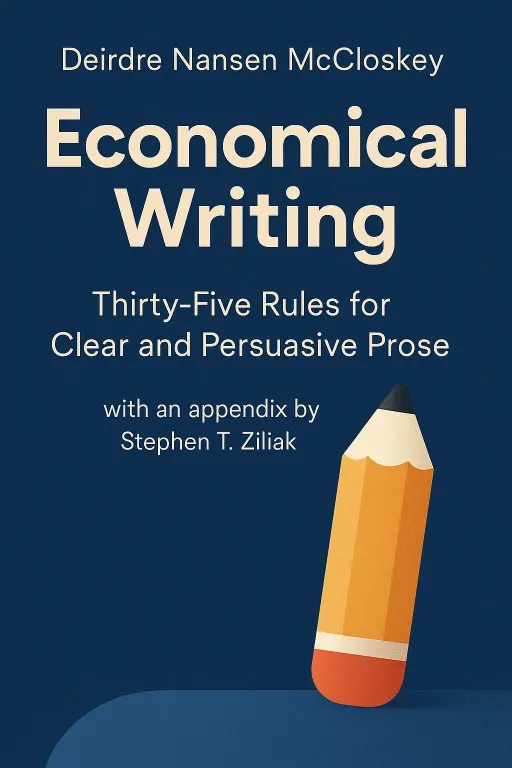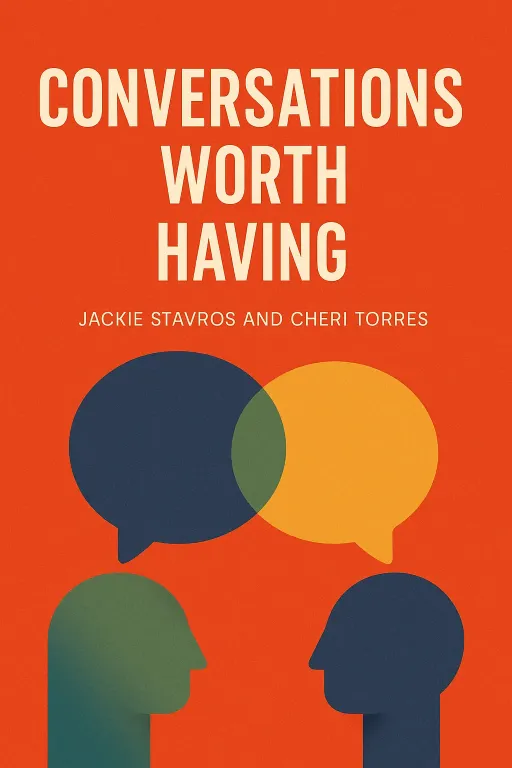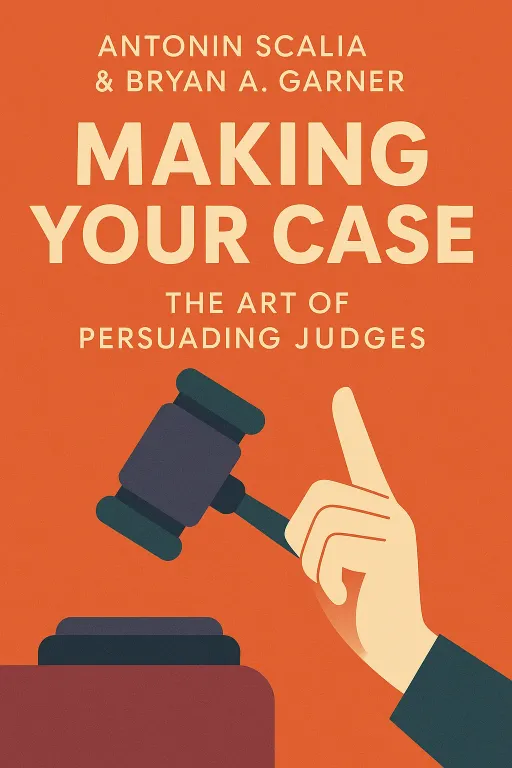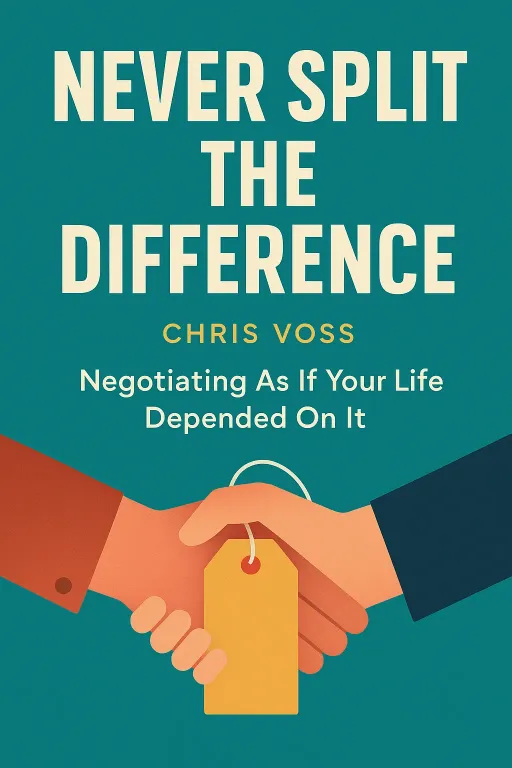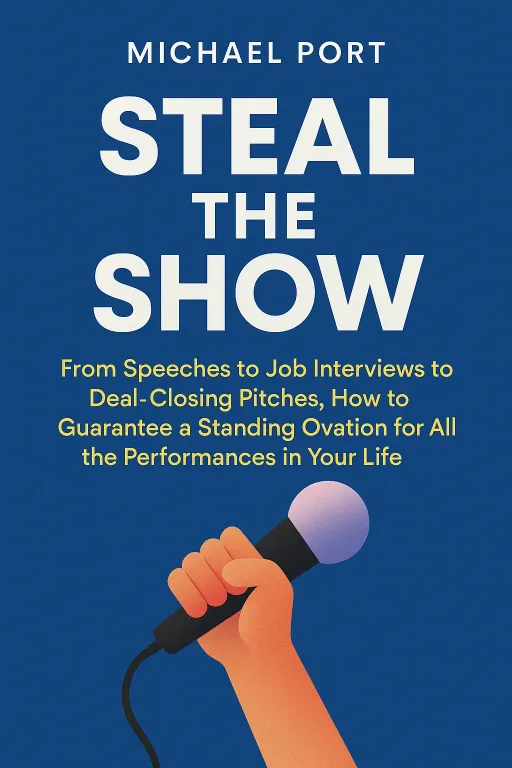
Steal the Show
10 minFrom Speeches to Job Interviews to Deal-Closing Pitches, How to Guarantee a Standing Ovation for All the Performances in Your Life
Introduction
Narrator: Imagine standing before everyone you love on your wedding day, about to say your vows. For many, this is a moment of pure joy, but for Joni Zander, it was a moment of terror. She had a deep-seated fear of public speaking and was convinced she would be so overwhelmed with emotion that she would cry through the entire ceremony, unable to articulate the promises she so desperately wanted to make. This feeling of high-stakes anxiety isn't unique to weddings; it appears in crucial job interviews, deal-closing pitches, and career-defining presentations. These are the spotlight moments where our ability to connect and communicate determines the outcome. What if there was a way to transform that fear into confidence, and that anxiety into a commanding presence?
In his book, Steal the Show, author and performance coach Michael Port argues that the solution lies in a place many of us would never think to look: the world of professional acting. He posits that the principles actors use to deliver powerful, authentic performances on stage are the very same tools we can use to guarantee a standing ovation in all the performances of our lives.
The World is a Stage, and Authenticity is Your Script
Key Insight 1
Narrator: The book's central philosophy is built on Shakespeare's famous line: "All the world's a stage, and all the men and women merely players." Port asks us to take this not as a metaphor, but as a practical model for life. Performance, he argues, is not about being phony or inauthentic. On the contrary, great acting is about finding and expressing a deeper reality. The goal isn't to become someone else, but to strategically choose which parts of your authentic self to bring forward for a given situation.
Port illustrates this with a story from his own life. After a career as a professional actor on shows like Sex & the City and Law & Order, he transitioned into the business world. He found himself applying for a corporate job for which he was, on paper, completely unqualified. Instead of being defeated by his resume, he approached the interview as a performance. He identified the role he needed to play: a confident, capable professional whose unique background was an asset, not a liability. He didn't lie or invent skills; he simply chose to highlight his communication abilities, his poise under pressure, and his creative problem-solving—all skills honed through acting. By playing this role with conviction, he landed the job, proving that performance principles can create tangible success.
Adopt the Performer's Mindset to Conquer Fear
Key Insight 2
Narrator: Before one can master the techniques of performance, one must first address the internal critic and the overwhelming fear of the spotlight. Port argues that nervousness isn't a weakness to be eliminated, but a positive trait. It’s a sign that you care deeply about the outcome and want to do well for your audience. The key is to reframe that nervous energy into excitement and focus.
Developing a performer's mindset involves three core shifts. First, you must find your true voice and trust it, letting go of the need for approval. Second, you learn to play the right role in every situation, adapting your style to connect with different audiences without losing your authenticity. Finally, and most critically, you must crush your fears by silencing the internal and external critics. Port emphasizes that you can be a critic or a performer, but you can’t be both. Performers build things; critics tear them down. By choosing to focus on your objective and your service to the audience, rather than on potential judgment, you starve the critic of its power and free yourself to take creative risks.
Master the Principles of Improvisation for Dynamic Connection
Key Insight 3
Narrator: Some of the most powerful tools in an actor's toolkit come from the world of improvisational theater. Port highlights two principles that are transformative for everyday communication. The first is to "Act 'as if...'" This is an imagination technique where you embody the qualities of the person you want to be. If you feel anxious before a presentation, you act as if you are confident and prepared. This isn't about "faking it till you make it," but about using a physical and mental choice to generate genuine feelings of confidence. Research, such as Amy Cuddy's work on "power posing," supports this idea, showing that adopting confident body language can actually change your hormonal state, reducing stress and increasing feelings of power.
The second principle is to "Say 'Yes, and...'" In improv, this rule forces performers to accept what their partner offers ("Yes") and build upon it ("and..."). In life and business, this mindset fosters collaboration, creativity, and adaptability. Saying "no" or "yes, but..." shuts down dialogue and kills momentum. By embracing a "Yes, and..." attitude, you become more flexible, open to new ideas, and capable of turning unexpected challenges into opportunities, whether in a brainstorming session or a difficult Q&A.
Rehearsal Isn't Repetition; It's the Path to Spontaneity
Key Insight 4
Narrator: Many people avoid rehearsing for fear of sounding robotic or unnatural. Port argues the exact opposite is true: thorough rehearsal is the only path to achieving effortless spontaneity. When you know your material so deeply that you no longer have to think about it, you are free to be fully present, listen to your audience, and adapt in the moment. Under pressure, you don't rise to the occasion; you fall back on your training.
Port outlines a seven-step rehearsal protocol used by professional actors, which goes far beyond simply reading a script over and over. It includes "table reads" to understand the content, "blocking" to map out physical movement, and "invited rehearsals" to get feedback from trusted sources. This rigorous process ensures that every element of the performance—from the core message to the physical staging—is intentional. The goal is to rehearse so effectively that the performance feels fresh and new every single time, giving the audience the gift of what feels like a spontaneous, authentic connection.
Stealing the Show Means Serving the Audience
Key Insight 5
Narrator: The title Steal the Show might suggest a self-centered goal of upstaging others and grabbing all the attention. However, Port immediately redefines this concept. In his framework, stealing the show has nothing to do with ego. It means your performance is so generous, so focused on the audience's needs, and so effective at delivering value that you elevate the entire experience for everyone involved.
This audience-centric philosophy is woven into every tip and technique. It means crafting your introduction to build immediate rapport. It means telling stories not just to entertain, but to connect the dots and make complex ideas clear. It means rewarding audience participation to make them feel valued and engaged. And it means having a clear objective that is ultimately about what the audience will think, feel, or do as a result of your performance. When you make the performance about them, not you, you earn their attention, their trust, and ultimately, their applause.
Conclusion
Narrator: The single most important takeaway from Steal the Show is that performance is not an esoteric art form reserved for a talented few; it is a fundamental life skill that can be learned and mastered by anyone. The techniques actors use to create reality on stage are directly applicable to the high-stakes moments that define our careers and personal lives. By shifting our perspective, we can learn to see these moments not as threats to be feared, but as opportunities to be seized.
The book challenges us to stop being passive observers in our own lives and to start taking on the role of the director. It asks a powerful question that extends far beyond any single speech or interview: In the grand performance of your life, are you consciously choosing the roles you play, or are you letting circumstances choose them for you? The real challenge isn't to become a different person, but to become more fully and effectively yourself, ready to step into the spotlight and deliver a show-stealing performance every time.
